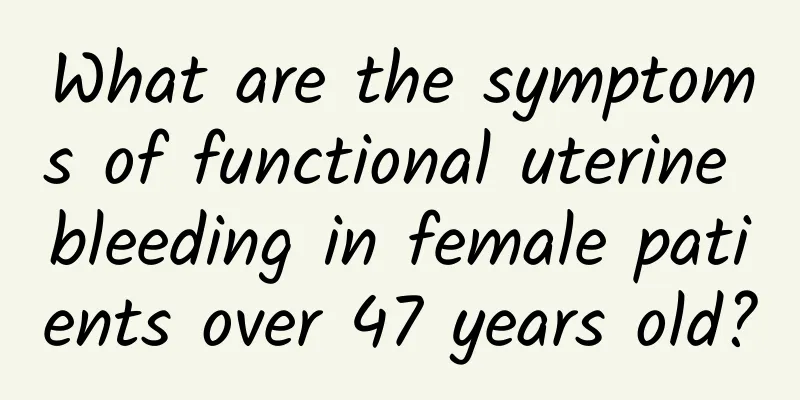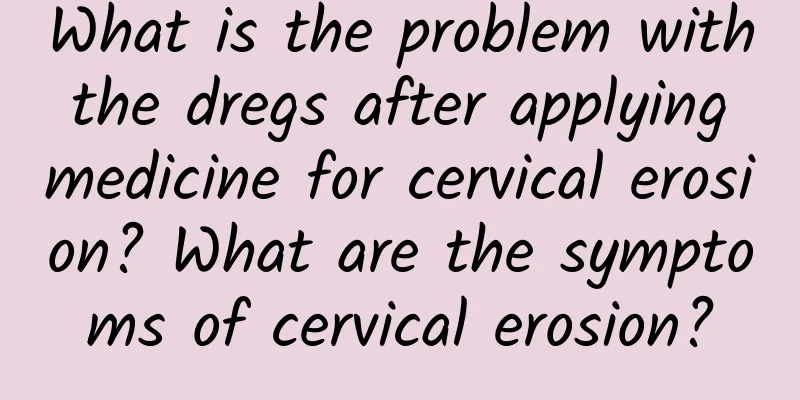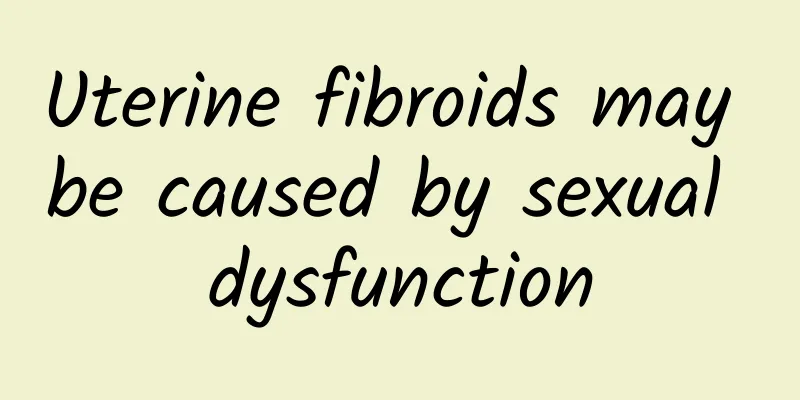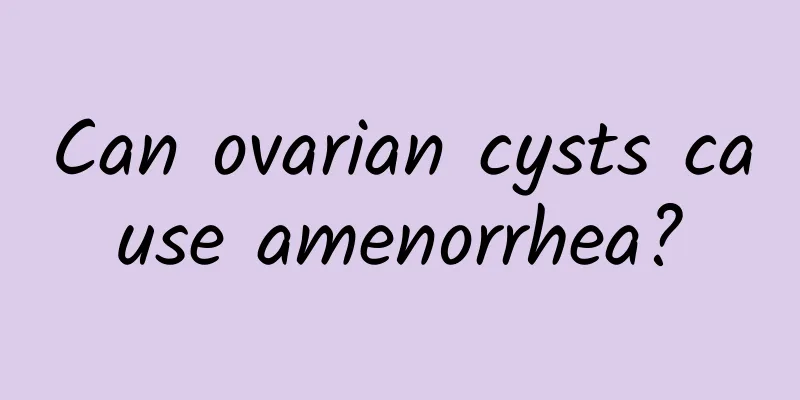What are the symptoms of functional uterine bleeding in female patients over 47 years old?

|
DUB is common in women over 47 years old, and is mainly manifested by irregular menstrual cycles, abnormal increase or decrease in menstrual flow, and may be accompanied by symptoms such as anemia and fatigue. Treatment should be based on the cause, including medication, surgery or lifestyle adjustments. 1. Symptoms of functional uterine bleeding Women over 47 are in perimenopause, their ovarian function gradually declines, and their hormone levels fluctuate greatly, which can easily lead to functional uterine bleeding. Common symptoms include: Menstrual cycle disorders: menstruation is early or late, the cycle is shortened or prolonged. Abnormal menstrual flow: Menstrual flow increases or decreases significantly, or even heavy bleeding or spotting occurs. Symptoms of anemia: Long-term bleeding may lead to anemia, which manifests as dizziness, fatigue, pale complexion, etc. Other discomforts: Some women may experience symptoms such as lower abdominal pain and back pain. 2. Causes of functional uterine bleeding The causes of functional uterine bleeding are complex and may be related to the following factors: Fluctuating hormone levels: The levels of estrogen and progesterone in perimenopausal women are unbalanced, leading to abnormal proliferation or shedding of the endometrium. Ovarian dysfunction: Decreased ovarian function and irregular ovulation affect the normal growth and shedding of the endometrium. Pathological factors: diseases such as endometrial polyps and uterine fibroids may aggravate bleeding symptoms. External factors: mental stress, overwork, irregular diet, etc. may also induce functional uterine bleeding. 3. Treatment of functional uterine bleeding For dysfunctional uterine bleeding, treatment options depend on the cause and severity of symptoms: Drug treatment: 1. Hormone therapy: such as oral contraceptives, progestins, etc., to regulate hormone levels and control bleeding. 2 Hemostatic drugs: such as tranexamic acid, to reduce the amount of bleeding. 3. Iron supplementation: used to improve anemia symptoms. Surgical treatment: 1. Endometrial resection: Suitable for patients who are ineffective with drug treatment. 2. Uterine artery embolization: used to control acute massive bleeding. 3. Hysterectomy: Suitable for severe cases or combined with other uterine diseases. Lifestyle Adjustments: 1. Dietary adjustment: Eat more foods rich in iron and protein, such as lean meat, spinach, red dates, etc. 2 Moderate exercise: such as yoga and walking, helps relieve stress and improve endocrine function. 3. Maintain a regular schedule: avoid staying up late and keep a good mood. Dysfunctional uterine bleeding is more common in women over 47 years old. The symptoms are diverse and may affect the quality of life. It is crucial to seek medical treatment in time, identify the cause, and choose the appropriate treatment. Through medication, surgery and lifestyle adjustments, most patients can effectively control symptoms and improve their quality of life. It is recommended that women have regular physical examinations, pay attention to changes in their health, and deal with problems in a timely manner. |
<<: There are several types of abnormal leucorrhea
>>: Can I still take a bath if I have abnormal leucorrhea?
Recommend
Veggie steak! Pan Huaizong: Eating mushrooms in a balanced way is nutritious and healthy
In Taiwan, there is always a shortage of dishes u...
What are the consequences of eating crabs after abortion?
Eating crabs after an abortion may cause diarrhea...
Eat "Green Ginseng" okra to lose weight, control blood sugar, and supplement calcium
Okra is a vegetable with high nutritional value a...
How much does bacterial vaginosis care cost?
There is no uniform price for the treatment of th...
What can you eat to abort a child? What are the dangers of aborting a child for women?
If a female friend wants to abort the child by ea...
What are the causes of acute cervicitis?
Cervicitis is a common gynecological disease, but...
How long does it usually take for menstruation to come again after an abortion?
How long does it usually take for menstruation to...
How big is the ovarian cyst and what are the daily treatment methods?
How big is an ovarian cyst? What are the daily tr...
Analysis of the causes of ovarian cysts
Basically, every female friend will encounter gyn...
What is the cause of uterine fibroids? What are the factors that prevent the recurrence of uterine fibroids?
Uterine fibroids, also known as uterine leiomyoma...
Stay away from obesity and allergies and say "no" to carbohydrates!
To stay away from obesity, allergies, dementia, d...
Can cervical bleeding cause miscarriage?
Cervical bleeding does not necessarily lead to mi...
Introduction to the hazards of dysmenorrhea that female friends need to pay attention to
In real life, many female friends do not pay atte...
How thick is the endometrium? Is it pregnancy?
Children nowadays are the hope of a family. Many ...
What are the precautions after painless abortion? Let's take a look
If you have a painless abortion, you need to pay ...









